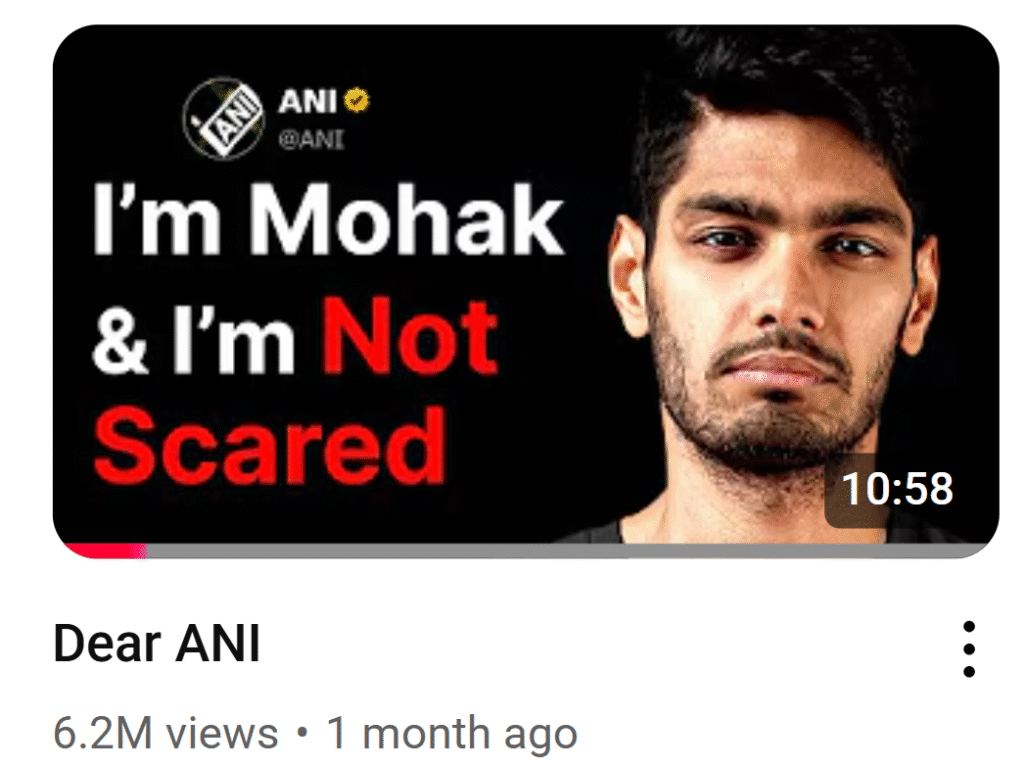
In a key development concerning digital speech and media defamation, the Delhi High Court has directed YouTuber Mohak Mangal to remove specific portions from a video that accused Asian News International (ANI) of “extortion” and “blackmail,” following a defamation suit filed by the news agency.
The video, titled “I am Mohak and I am not scared”, alleged that ANI issued multiple copyright strikes against Mangal’s YouTube channel and subsequently demanded ₹45–50 lakh to withdraw them. ANI contended that the video clips used were unauthorized, and the copyright enforcement actions were within the scope of YouTube’s takedown system.
The Plaintiff asserted that Mangal had violated its exclusive rights by reproducing and communicating its footage without a license, thus breaching the Copyright Act, 1957. Mangal, in contrast, claimed that the usage fell within the scope of “fair dealing” under Section 52, as the short clips (5–18 seconds) were embedded within long-form commentary videos.
However, the Court took serious note of the language used in the video, which included terms such as:
- “Hafta vasooli by ANI”
- “Gundaraj in Indian media”
- “World’s largest extortionist agency”
Justice Amit Bansal found these references to be prima facie defamatory, observing that there was no justifiable basis for such strong and derogatory expressions, particularly in the absence of an immediate or real threat to Mangal’s channel.
The Court emphasized that while creators have the right to critique, this right does not extend to defamatory speech cloaked as public interest content.
Accordingly, the Court:
- Directed that the video be made private immediately.
- Ordered a red-lined version of the transcript with the objectionable portions struck through.
- Allowed for the re-uploading of an edited version, post-compliance.
Co-defendant Mohammed Zubair voluntarily agreed to take down his related post and was dropped from the case. Kunal Kamra, also a co-defendant, declined to remove his tweet, claiming it was satirical, an argument that did not find favour with the Court.
The ruling is a wake-up call for digital creators, especially in an era where news dissemination is increasingly decentralized. The verdict reinforces the necessity for responsible journalism, even when it comes from non-traditional sources. YouTubers and influencers wield significant public influence and, therefore, must exercise caution while discussing sensitive topics involving institutions like ANI.
For traditional media, the judgment sends a strong message that their reputation cannot be casually maligned without consequences. It also reaffirms their right to seek judicial redress when wrongfully targeted. Media freedom comes with accountability, and this case reinforces the fine balance between rights and responsibilities in content creation.
This case underscores the evolving legal framework around copyright enforcement, fair use, digital content accountability, and the limits of online criticism in India.
Disclaimer: This post is intended solely for informational purposes.
